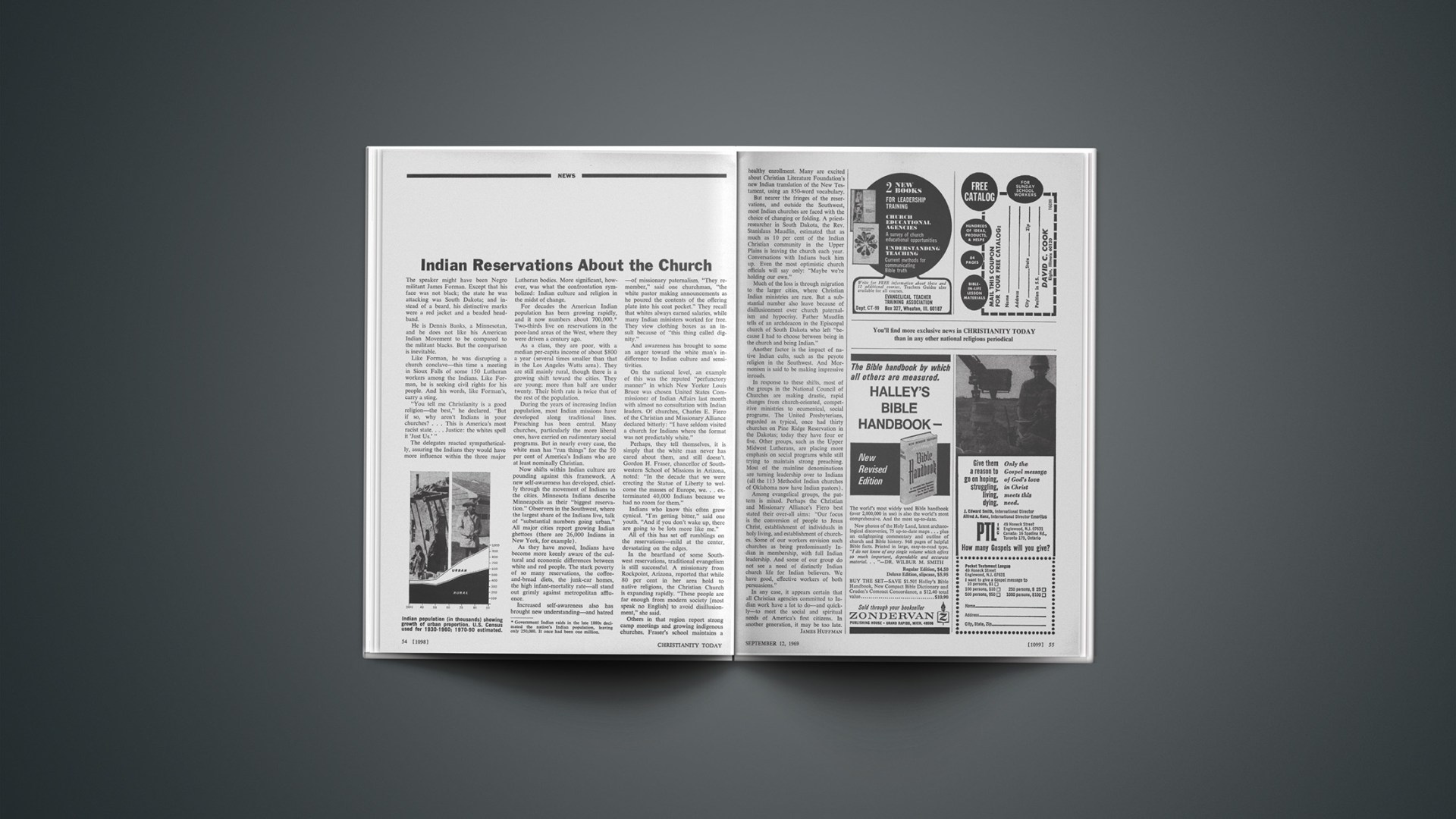It has been a long, hot summer for American Baptist Convention headquarters staffers at Valley Forge, Pennsylvania. Long-simmering liberal-conservative tensions are boiling over, some as an aftermath of a semi-secret communication study. As expected (see June 6 issue, p. 41), the study recommended in part that the denomination’s popular tabloid Crusader and the ailing Mission journal be replaced by a new all-purpose periodical.
Crusader editor Paul Allen says ABC communication executive Dean Goodwin told him that despite editorial seniortiy, Allen would not be named to the top post of the new magazine. Goodwin denies saying this. Allen, increasingly the target of liberals’ fire for his conservative editorials, circulated a counter-proposal that would retain a slicked-up Crusader. At this, Goodwin fired him for “insubordination.” But General Secretary Edwin Tuller next day rescinded Goodwin’s action and instead placed Allen on paid leave. Home-missions chief James Christison and others, angered by Tuller’s intervention, urged the nonplused Goodwin to press his case. Some leaders threatened to quit if Allen were reinstated.
Crusader’s editorial committee virtually upheld Tuller and Allen; members will meet with Goodwin’s other departmental committees this month in Indianapolis to thrash out the issue. Meanwhile, Allen’s assistant put out the September issue. Some officials predicted privately that Allen, still on leave, will resign and return to secular journalism.
Crusader is probably unique among church papers. Its news reporting is fairly objective, and controversial issues get both-sides treatment. With a circulation of 360,000—up 30,000 during Allen’s eleven-year editorship—it reaches the majority of ABC homes and is second only to fatly subsidized Presbyterian Life in constituency saturation.
Curiously, despite signs of health, the recent study by secular organizations reported primarily negative symptoms, such as shabby makeup, substandard content, and poor readership reception. The samplings reportedly involved fewer than 1,200 of the ABC’s 1.5 million members.
One ABC church member, a veteran secular journalist, blamed the ABC’s communication woes on troubles at the source, not transmission, level: the newsmaking events themselves. Indeed, Tuller and other staff heads have been forced to divert costly major attention to the deluge of protests—including threats of financial recriminations—over an ABC agency’s $200,000 grant to the Interreligious Foundation for Community Organization (IFCO), which spawned the Forman reparations movement. ABC administrators also face lingering widespread unrest generated by liberal strides taken at the May Seattle convention and by grass-roots unhappiness with head-quarters-styled evangelism.
It was the summer of discontent in Van Nuys, California, too, where the 8,000-member First Baptist Church—the ABC’s largest—unanimously called it quits after more than a decade of estrangement. Pastor Harold Fickett, Jr., explained: “We want to be a traditional Baptist church, but the present ABC course is antithetical to this desire.” Disclaiming vindictiveness, he cited the IFCO matter, a new ABC rule granting voting rights to non-immersed delegates, and “universalism in the evangelism department” as reasons for withdrawal.
Over-all, however, there have been thirty-six affiliations and eighteen disaffiliations of churches from the ABC so far this year.
EDWARD E. PLOWMAN










